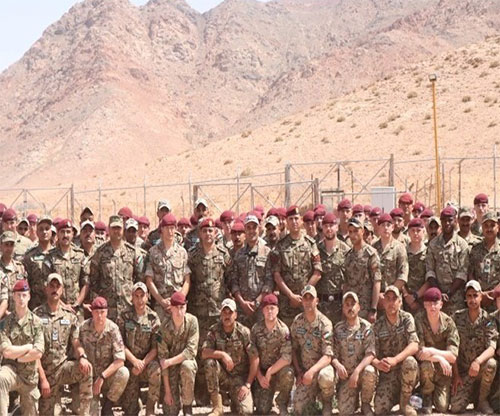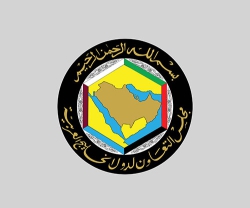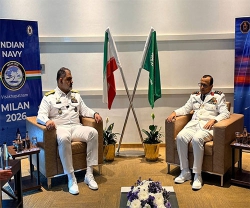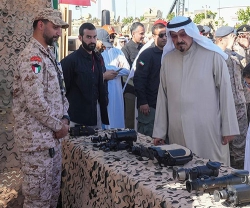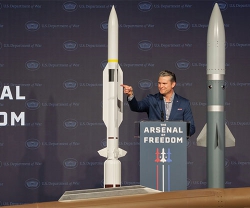The joint Jordanian-British military exercise “Sword 25” kicked off on Sunday, conducted by the 81st Rapid Intervention Battalion part of the Sheikh Mohammed bin Zayed Al Nahyan Rapid Intervention Brigade in cooperation with a unit from the UK’s 16th Air Assault Brigade.
Spanning four weeks, the drill aims to enhance participants’ skills in joint planning, coordination, and rapid response to emergencies, while improving decision-making capabilities under various conditions and challenges.
The training includes joint operations such as planning procedures, intelligence gathering, urban and desert combat, and air assault operations. Live-fire exercises using various weapons systems and support arms are also part of the program, along with desert survival and tactical skills training.
The exercise is part of the Jordan Armed Forces' broader training strategy, conducted in cooperation with allied and friendly armies to exchange expertise, bolster combat readiness, and strengthen operational capabilities in diverse environments, Petra news agency reported.
In another development, Chairman of the Jordanian Joint Chiefs of Staff, Major General Yousef Huneiti, welcomed Saturday visiting Indonesian Defense Minister Shafri Shamsuddin and an accompanying delegation at the General Command of the Jordan Armed Forces- Arab Army (JAF).
The Minister was accorded a military reception at the General Command Headquarters, including an honor guard parade.
During a meeting attended by the Indonesian Ambassador and Senior Officers of the Jordanian and Indonesian Armed Forces, the two sides tackled various aspects of cooperation and coordination in military training, defense industries, the exchange of expertise, and joint military drills.
The Indonesian delegation were briefed on training and operational plans and tasks and duties undertaken by JAF to safeguard Jordan's security and stability.
The Army Chief and the delegation attended a tactical exercise at the King Abdullah II Special Operations Training Center (KASOTC), where they were briefed on the drill, aimed to enhance the combat efficiency and military expertise of participants in operational and training matters.
The drill, carried out by the King Abdullah II Royal Special Forces, included combat operations in built-up areas and storming, training on isolation and cordoning procedures in built-up areas, fast-rope landings using helicopters, live fire using small and medium weapons, and sniper shooting.
The Chairman of the Joint Chiefs of Staff and the delegation commended the skills, morale and combat readiness demonstrated by participants.

